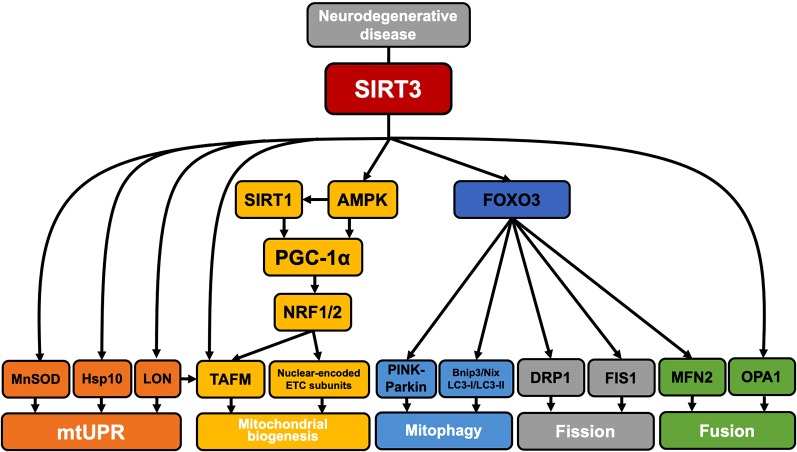Figure 3.
SIRT3 regulation of mitochondrial quality control in neurodegenerative disease. SIRT3 is involved in the regulation of mitochondrial quality control in neurodegenerative diseases. SIRT3 deacetylates MnSOD, HSP10, and Lon proteases and participates in the mitochondrial unfolded protein response. SIRT3 can activate AMPK by upregulating the ratio of AMP/ATP. Activated AMPK can directly phosphorylate PGC-1α or enhance SIRT1 activity by increasing NAD+ levels, and SIRT1 can then deacetylate PGC-1α. PGC-1α interacts with NRF1/2 to activate TFAM and promote the synthesis and import of nuclear-encoded ETC complex subunits [such as the Fe–S subunit of succinate dehydrogenase (SDH) or the subunit of cytochrome c oxidase]. In addition, Lon proteases are also involved in the selective degradation of TFAM to regulate mitochondrial biogenesis. SIRT3 can deacetylate FOXO3, thereby activating PINK1–Parkin pathway-mediated mitophagy. Activated FOXO3 also promotes the expression of Bnip3/Nix, LC3-I/LC3-II, DRP1, FIS1, and MNF2 and regulates mitophagy and mitochondrial fission/fusion. The direct deacetylation of OPA1 by SIRT3 is also involved in the regulation of mitochondrial fusion.

